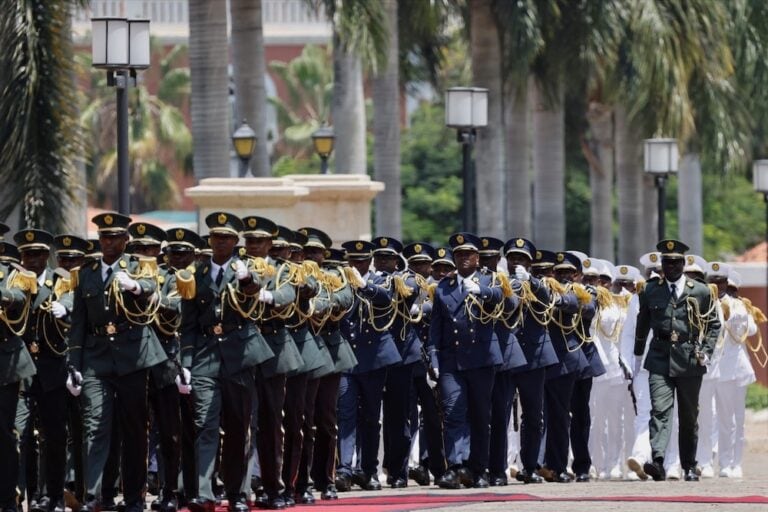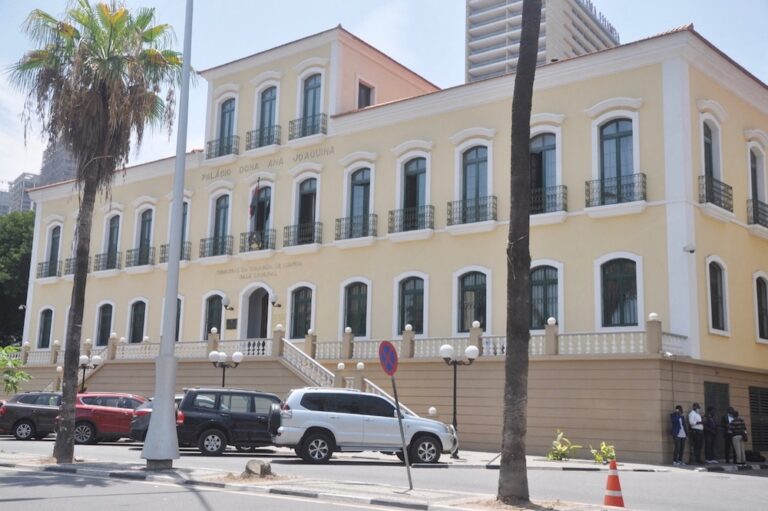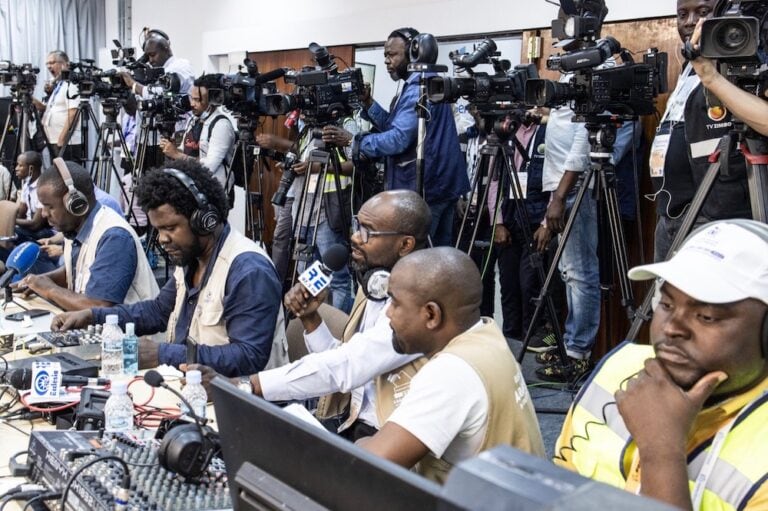(MISA/IFEX) – On Thursday 12 July 2001, government officials prohibited BBC correspondent in Angola Justin Pearce and Rafael Marques, a local freelance journalist and human rights activist, from reporting on the resettlement camp for Boavista residents. Dona Dulce, a Ministry of Social Reinsertion officer, who was overseeing the camp, told the reporters that she had […]
(MISA/IFEX) – On Thursday 12 July 2001, government officials prohibited BBC correspondent in Angola Justin Pearce and Rafael Marques, a local freelance journalist and human rights activist, from reporting on the resettlement camp for Boavista residents.
Dona Dulce, a Ministry of Social Reinsertion officer, who was overseeing the camp, told the reporters that she had strict orders not to allow any journalist to talk to the residents, take pictures or stroll around without a special permit from the Luanda provincial government.
Another Ministry of Social Reinsertion officer, who refused to be identified, stated: “there are no laws in this camp. We are aware that there is freedom of press in some countries, but we doubt if it applies to our situation here.” After trying to get into the journalists’ vehicle to ensure they left the area and were out of sight, the ministry official called in two police officers that chased the journalists away.
Two days before, Rádio Ecclésia journalist Alexandre Cose was also barred from covering the Boavista residents’ relocation to a tented camp some forty kilometres away from Luanda. The government’s attitude in barring the media from covering the unlawful eviction of 13,000 families, and their forced relocation into an area with far worse conditions, is an indication of its insensitivity towards respecting its people’s basic rights.
However, on Wednesday 11 July, Angolan Social Communication Vice-Minister Manuel Augusto claimed, at the British-Angola Forum in London, that the trouble with the media in Angola has to do with the journalists’ lack of professionalism.
(Source: MISA/Open Society Foundation in Angola)


